Just when you think COVID produced some positive outcomes for the environment.
Turns out that the items we use to keep ourselves safe, such as masks, gloves, and hand sanitizer bottles, are adding to the continuing damage of ocean and environmental pollution.
As COVID-19 generates a new kind of pollution, made of disposable masks and other PPE items, it’s posing new threats for the Earth’s oceans.
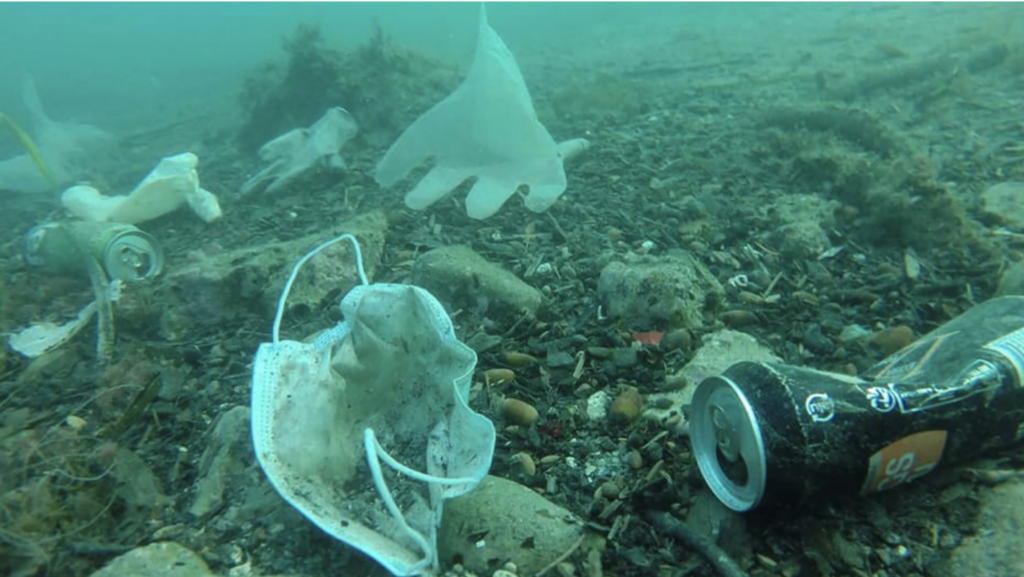
The flood of the PPE items is threatening the lives of marine animals. What has now been described as “COVID Waste”, disposable masks have been found floating like the Jellyfish that sea turtles feed on, and latex gloves found scattered across seabeds. Masks and gloves have now been mixed in with the everyday ocean pollution such as plastic bags, straws, bags, and others.
The coronavirus pandemic has definitely changed up many people’s plastic free goals and routines. Masks and gloves are 2 new single-use plastics that have become a part of our daily lives.
Just as people are starting to become more eco-friendly and using plastic-free products in efforts to eliminate plastic pollution, a new kind of pollution has started.
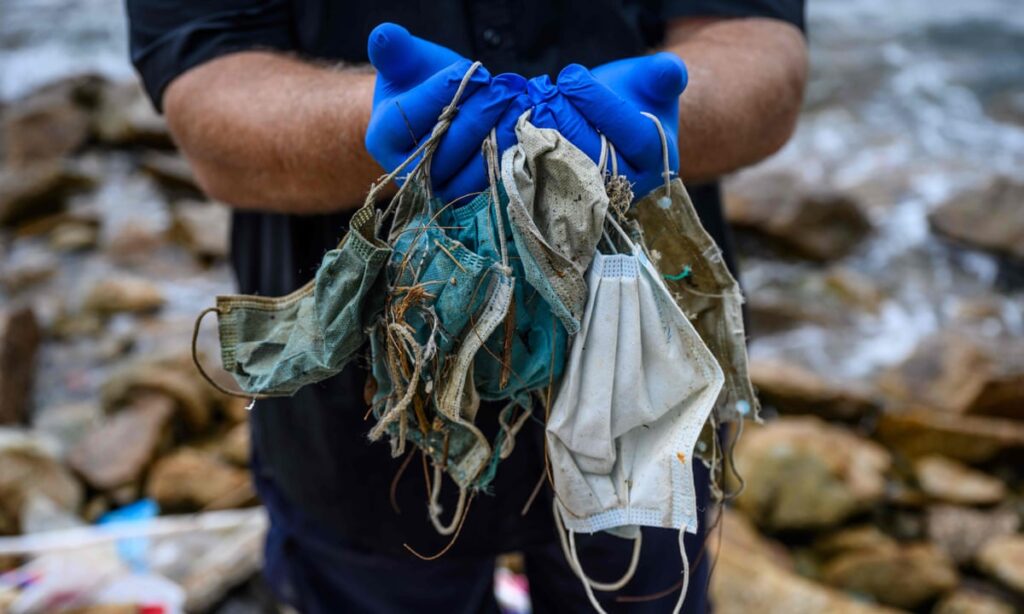
8 million metric tons of plastics enter our oceans every year, adding to the 150 million metric tons already in the marine environment. One study has already estimated that if every person in the UK alone used a single face mask each day for a year, it would add an additional 66,000 tones.
Most masks contain polypropylene (thermoplastic polymer) and most gloves are composed of nitrile, which contains plastic. These plastics remain in the ocean for years, breaking down into microplastics, and eventually ending up in the food on our plates.
Disposable masks have a lifespan of 450 years, which means that each mask in the ocean has 450 years to cause damage.
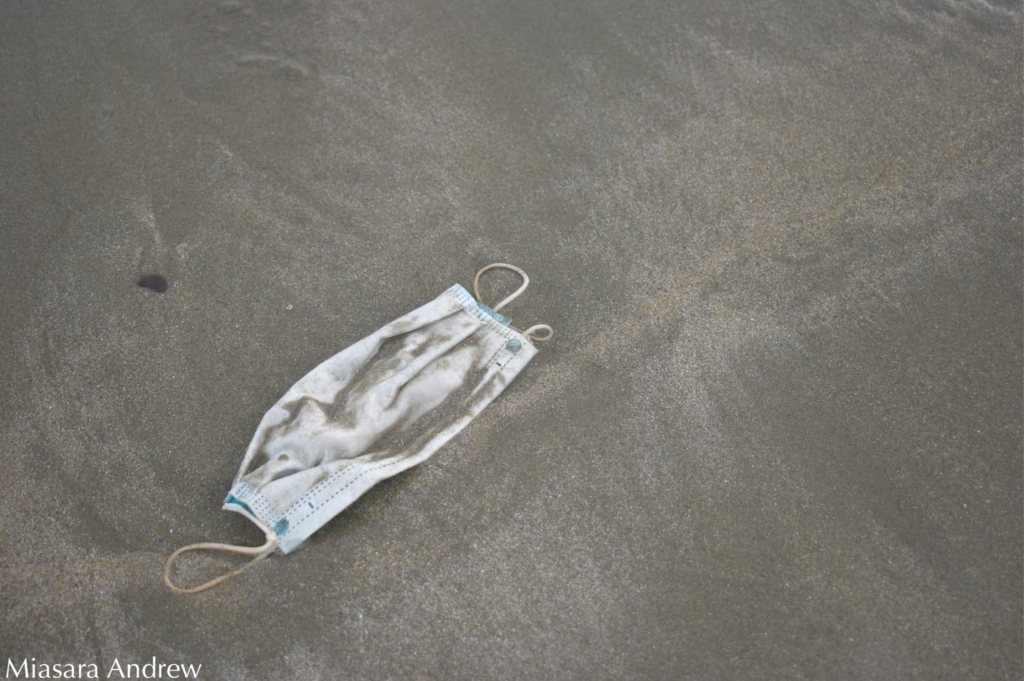
Conservationists are saying that PPE items are likely to become a catastrophe for biodiversity. All kinds of marine life can get entangled in masks. Sea turtles could mistaken masks or gloves for jellyfish and when ingested could lead to death from asphyxiation or starvation because their stomachs become full.
It’s very likely that marine life, such as sea turtles, dolphins, and porpoises could mistake these masks for food. As these animals are being washed up dead, it’s just a matter of waiting for necropsies to tell us if these animals are in fact consuming them.
These disposable masks are not being disposed properly and it’s astonishing that people think that throwing them in the ocean will make it disappear.
Because of this, conservationists are now saying that there will be more masks than jellyfish in the Mediterranean waters.
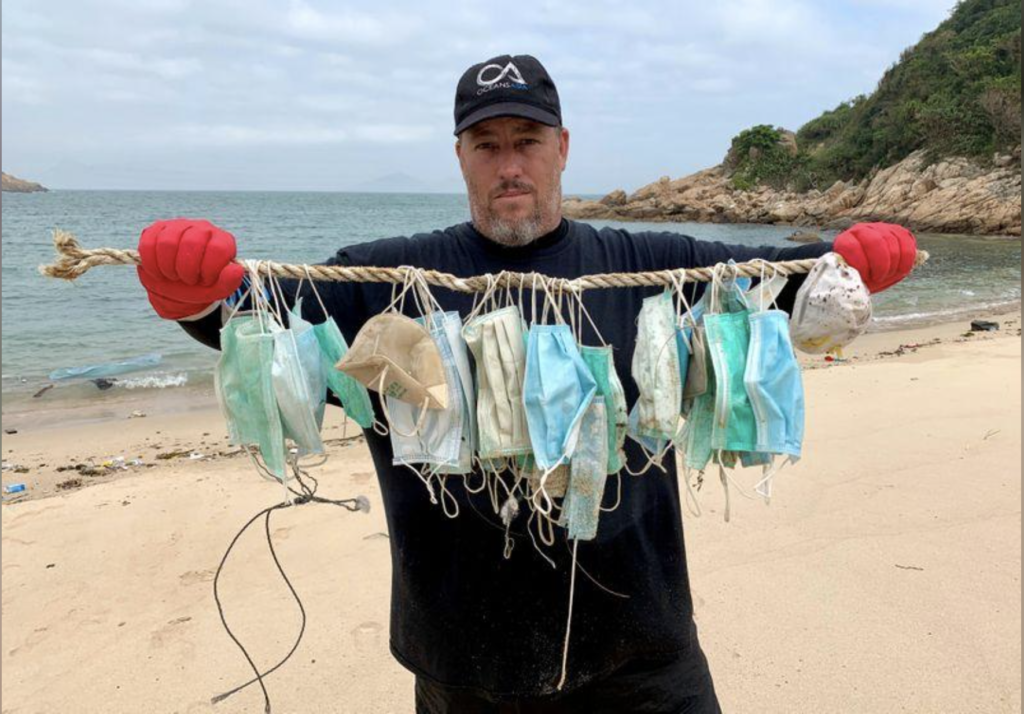
Most of the masks and gloves debris is a result of carelessness.
Wearing reusable masks and washing your hands often instead of wearing gloves is just enough to keep COVID waste out of our oceans. There is no shame in wearing disposable masks if that makes you feel safe but dispose of them properly!
While doing what’s best for you, also do what’s best for our planet.
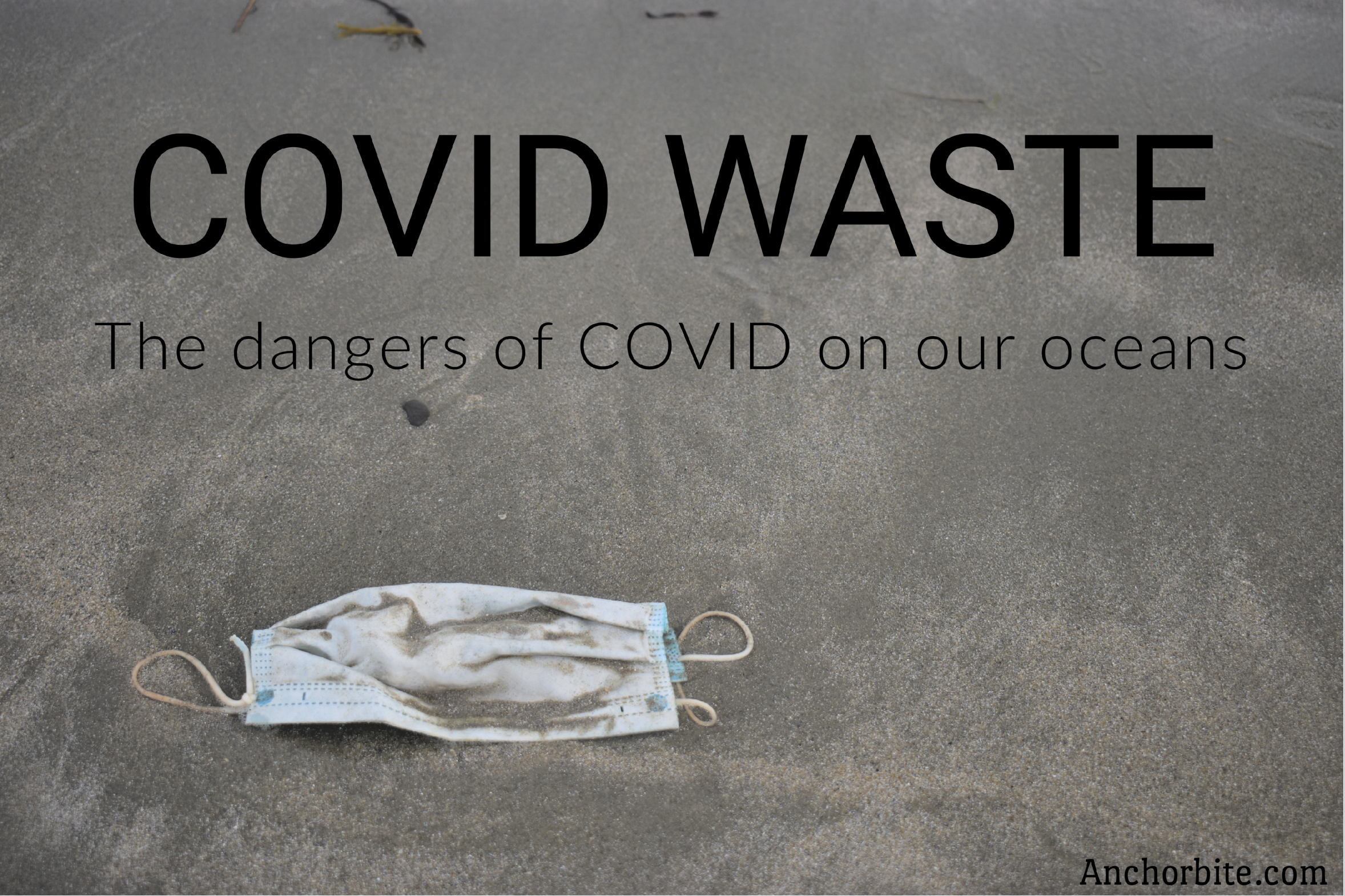
I’m glad somebody’s actually pointing out the downsides of COVID on the environment and ocean. People think COVID is only good for the planet and take it as a win. But now I can’t use my reusable cups at coffee places and I can’t bring my reusable bags to the grocery store because we’re not allowed to anymore. I wonder how much extra plastic pollution is being caused just by people reverting back to single use plastics. It’s such a shame since they were just starting to ban single-use plastics in so many stores and communities.